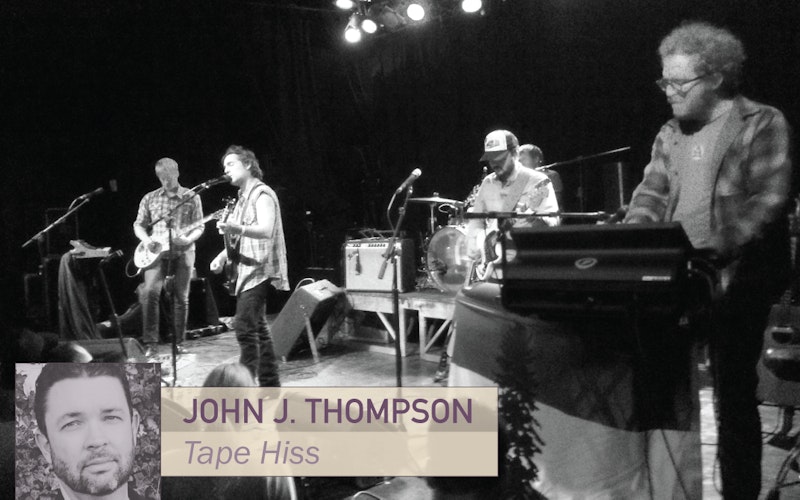
Music
Mining meaning from Blitzen Trapper’s All Across This Land
Portland’s Blitzen Trapper just released All Across This Land, their eighth album and — barring an intervention of supernatural proportions — likely my Album of the Year. I haven’t been this moved by a new record since Daniel Amos’ stellar Dig Here, Said the Angel in 2013. Like that gem, All Across This Land is a tight and visceral collection that unapologetically plumbs life’s big questions with the radio cranked up and the windows rolled down.
The tracks here range from blistering riff-rock to alt-country, from sweeping pop to apocalyptic folk, so that each song sounds like a hit single in one format or another. The melodies soar and the ideas connect. And lurking between the riffs and sing-along choruses is a deep well of spiritually provocative reflection.
Songwriter, guitarist and front man Eric Earley has an uncanny ability to imbue even the most clichéd metaphor with new meaning. “Nights Were Made For Love,” for instance, channels Bruce Springsteen’s “Born To Run” sentiment but adds a deeper thought. While the lyrics at first paint a vivid portrait of small-town life in a simpler time, suddenly the idea shifts so that the final verse essentially paraphrases Song of Songs 8: 6-7:
Love is stronger than death you know
Oh it’s stronger even than the grave
It burns like a blazing fire by night
And like the sun on a sky blue day
But many waters cannot quench my love
There ain’t no river gonna sweep it away
It’ll cost more than all the silver and gold
So you better put your money away
This verse colors the rest of the song in an interesting way. Without it, the chorus — “The days were made for working hard but the nights were made for love” — could sound like any other rock-and-roll slogan. Here, however, Earley seems to suggest that there is more to love than simply getting lucky.
Earley accomplishes a similar bit of lyrical slight-of-hand on “Lonesome Angel,” which at first seems to lean on the well-worn trope of the woman whose love sustains the traveling troubadour. A closer look, however, reveals a supernatural subject rather than an earthly one. The “angel” in question seems to be present during the singer’s most trying, lonely and confusing times, as well as “when the water turns to wine.” Could it be that the song actually refers to a series of prayers?
Lurking between the riffs is a deep well of spiritually provocative reflection.
The opening title track, meanwhile, is a hook-laden, classic rock barnstormer that welcomes the arrival of a son with an encouraging bit of feel-good swagger. The chorus is all bravado and optimism, even as the lyric subtly references the Civil Rights spiritual “All My Trials.” The album closes with “Across the River,” the latest in Earley’s impressive cannon of acoustic story songs — this one about a dream or vision in which the protagonist finds his way to a heavenly city where “a day is much like a thousand years,” only to be sent home because it is not his time yet.
Blitzen Trapper celebrates everything there is to love about Dylan (both Thomas and Bob), The Boss, Tom Petty, The Eagles, Led Zeppelin, Gram Parsons, Neil Young and the rest — but never gets lost in those long shadows. The band’s sensitivity and skill has been honed by years of touring; their willingness to unabashedly embrace the stripped-down, fully analog sounds of another era serves them well. Each individual track on All Across This Land is worthy of deeper analysis and appreciation. On the surface, Blitzen Trapper has delivered a satisfying collection of musical comfort food for fans of classic rock. Dig deeper, however, and it gets more fascinating, not less.
Topics: Music, Culture At Large, Arts & Leisure